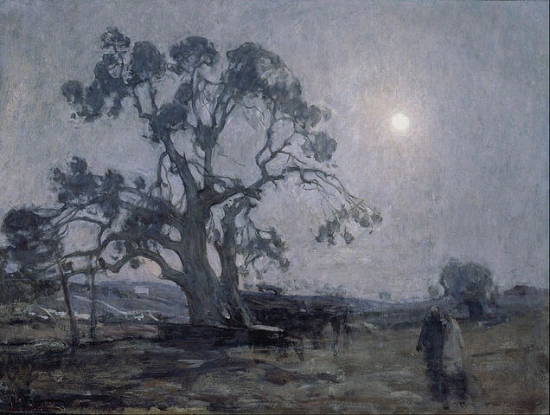1
And Jacob called his sons, and said, Gather yourselves, and I will tell you what shall befall you in the last days.
2
Bring· yourselves ·together and hear, ye sons of Jacob, and hearken to▵ Israel your father.
3
Reuben, my firstborn, thou◦ art my power, and the beginning◦ of my vigor, excelling◦ in eminence, and excelling◦ in strength.
4
Fickle as water thou shalt not excel◦, for thou wentest··up on the bed of thy father, then thou didst profane it; he went··up on my mat.
5
Simeon and Levi are brothers; instruments of violence are their swords.
6
Into their secret council let not my soul come; with their assembly let not my glory be united; for in their anger they killed a man◦, and in their good··pleasure they hamstrung an ox.
7
Cursed be their anger for it was strong, and their wrath for it was hardened. I will part them in Jacob, and scatter them in Israel.
8
Thou◦ Judah, thy brothers shall confess thee, thy hand shall be on◦ the neck◦ of thine enemies, the sons of thy father shall bow··down to thee.
9
Judah is a whelp of a lion; from the prey, my son, thou art gone··up; he stooped, he couched as a lion, and as an old··lion; who shall raise· him ·up?
10
The scepter shall not be removed from Judah, and a lawgiver from between his feet, even··until Shiloh come; and to Him will be the obedience◦ of the peoples.
11
He binds his donkey··colt to the vine, and the young◦ of his she··donkey to the noble··vine; he washes his clothing in wine, and his covering in the blood of grapes;
12
his eyes are red with wine, and his teeth are white with milk.
13
Zebulun shall inhabit the haven of the seas, and he◦ shall be a haven* for ships, and his flank shall be by◦ Zidon.
14
Issachar is a bony◦ donkey, couching between the packs.
15
And he shall see rest that it is good, and the land that it is pleasant; and he shall incline his shoulder to bear··the··burden◦, and shall be a servant to tribute.
16
Dan shall make··judgment◦ for his people as one of the tribes◦ of Israel.
17
Dan shall be a serpent on the way, an arrow-snake upon the path, biting the horse’s heels, and his rider shall fall backward.
18
I wait for Thy salvation, O Jehovah.
19
Gad, a troop shall troop··against* him and he◦ shall troop··against the heel.
20
From Asher, his bread is with··oil, and he◦ shall give the pleasurable things of a king.
21
Naphtali is a deer sent··out, giving goodly sayings*.
22
Joseph is the son of a fruitful one, the son of a fruitful one over a fount* of the daughters, she strides upon the wall▵.
23
And the arrow masters embitter him, and shoot◦, and hate◦ him.
24
And he shall sit in the strength◦ of his bow, and the arms of his hands are strengthened▵ by the hands of the Powerful··One of Jacob; from thence is the Shepherd, the Stone of Israel.
25
By the God◦ of thy father, and He shall help thee, and with◦ Shaddai, and He shall bless thee, with the blessings of heavens from above, with blessings of the abyss that coucheth beneath, with blessings of the breasts and of the womb.
26
The blessings of thy father shall prevail above the blessings of those who conceived me, even··to the longing of the hills of an age; they shall be on the head of Joseph, and on the top··of··the··head of the Nazarite* of his brothers.
27
Benjamin is a wolf, he tears away in the morning, he shall eat··up the prey◦, and at evening he shall part the spoil.
28
All these tribes◦ of Israel are twelve; and this is what their father spoke to them and blessed them; each◦ according··to his blessing he blessed them.
29
And he commanded them, and said to▵ them, I◦ am being gathered to▵ my people; bury me to▵ my fathers in▵ the cave that is in the field of Ephron the Hittite;
30
in the cave that is in the field of Machpelah, which is upon the faces of Mamre, in the land of Canaan, which Abraham bought with the field from Ephron the Hittite for a possession◦ of a burying··place.
31
There they buried Abraham and Sarah his wife; there they buried Isaac and Rebekah his wife; and there I buried Leah.
32
That which was bought of the field, and of the cave which is in it, was from the sons of Heth.
33
And Jacob completed commanding his sons, and he gathered his feet to▵ the bed◦, and expired, and was gathered to▵ his peoples.







